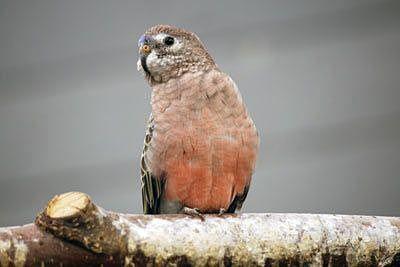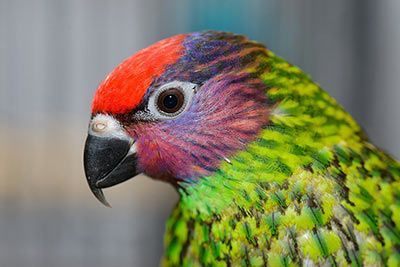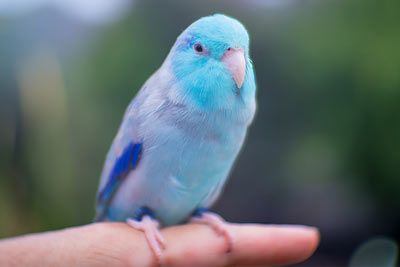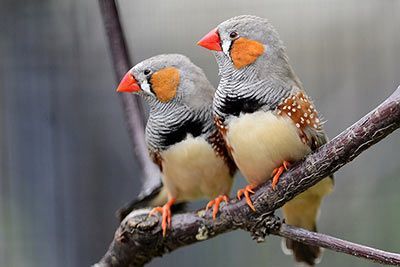Bird Allergy
Can you be allergic to birds? Yes! We tell you why and what you can do about it!
It’s not actually because of the bird itself, but its feathers dander and droppings. Allergies can also be set off by (damp) bedding or moldy leftover food.
The biggest problem with a bird allergy is: birds often flap their wings and send the allergens flying around the room. This is even worse when the bird is molting. animalfunfacts.net has tried to come up with some tips to make life with allergies easier (no guarantee).

What to Do If You Have a Bird Allergy?
• Cage the clean regularly
If you’re not able to clean the cage outside, arm yourself with gloves and a mask. Make sure you air out the room after cleaning. Parquet or laminate flooring should be cleaned regularly, and carpets and rugs should be removed. After the “deep clean”, the cage should also be checked for damp patches on a daily basis to make sure there’s no mold.
• Use dust-free bedding
You can get low-dust or even dust-free bedding from many pet stores.
• Wash your hands regularly
It’s best not to touch the bird at all. But if you do make contact with your feathered friend, you should immediately wash your hands and change your clothes.
• Feed dust-free food
Grain feed can create lots of dust. It’s worth trying a different food to see if it improves the allergy. It’s best to ask your vet or at your local pet store.
• The bedroom should be a bird-free zone
The cage should not be kept in the bedroom. Ideally, the bird should be kept in a “bird room” if you have a free room. As the fine dust can often cling to clothing and be carried through to the bedroom, you should change your bedding often.
Nothing’s Helping the Allergy
Animal allergies can be fatal, especially if allergic asthma develops or if children live in the household. Even if only one family member is affected, you should put them first and give the bird away. Human health is more important!
This article is for information purposes only and does not come with a guarantee. This article does not constitute medical advice, so should not replace a visit to your doctor. Please always contact a doctor for medical advice.










